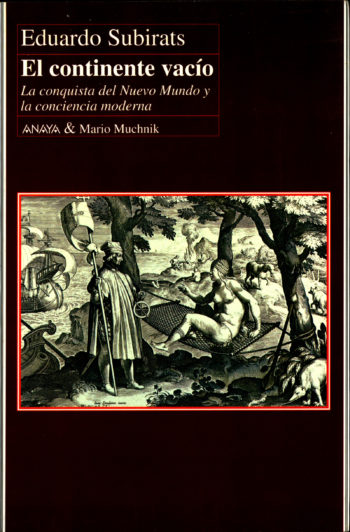From my travels throughout the Americas, across its landscapes of ecological destruction, human degradation and violence, emerged the project for an essay that would shine the light on the theology and teleology of the colonization of the American continents and the total elimination of their gods and ancestral cultures. The essay was also born of my fascination for their native peoples and ancient civilizations.
This essay is titled El continente vacío: a continent emptied of its gods and its memories through a continuous process of violence. This essay contains two parts. The first is negative: I analyze a series of situations that elucidate the theological, military, and economic aspects of the colonization and its Latin American intellectual representative par excellence: Las Casas. From this same perspective, I reconstruct the logical and political continuity between colonial theology and modern scientific epistemologies, and between Spanish theocratic and modern technocentric imperialism.
Its second part is affirmative: I underscore the philosophical humanism of Inca Garcilaso and identify its connections with the Linguistic Humanism of Lorenzo Valla and the Neoplatonic Humanism of Leone Ebreo. I highlight the groundbreaking and paradigmatic character of Garcilaso’s modern hermeneutic and anticolonial resistance.
The first edition of El continente vacío, which came out in Spain in 1993, was effectively suppressed by the country’s Catholic censorship. Princeton University Press refused to publish it on the grounds that it was “Eurocentric.” Hanser Verlag declined to publish a German edition, calling it excessive for the right-minded German consciousness. The essay was edited and re-edited in Mexico and Colombia. Latin-American Studies departments in the United States chosen to ignore its premises because of its attack on postcolonial scholasticism and their interpretation of the theology of colonization as “liberation theology.”
